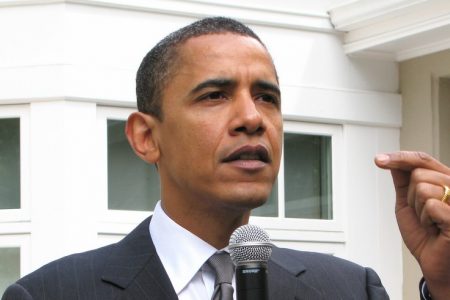Who can get it across to the voters that life is good in the Netherlands?
Voters seem to be guided by their emotions rather than by the facts, and this can have consequences for democracy, Gert-Jan Lelieveld writes. For once, try focusing on the things that are going well.
Emotional considerations
In less than a month’s time, on 15 March 2017, voters in the Netherlands go to the polls. Last week Professor Barbara Baarsma gave a short presentation on the popular Dutch talk show De Wereld Draait Door about how voters are guided more by emotional than rational considerations. Voters focus more on negative emotions and events than on positive ones. But surely things aren’t going so badly in our country?
Dutch children are the happiest
The Netherlands scores highly in a lot of different rankings. Dutch children are the happiest in the world, and Dutch adults rank seventh in the World Happiness Index. Compared with other European countries, the Netherlands is very wealthy, has the best healthcare provision, and one of the lowest levels of youth unemployment. Moreover, the Netherlands is in the top 20 of major economies of the world, which is also reflected in the size of our exports to other countries.
The things that do not go well
So the Netherlands comes out well in all the rankings. But many people have no interest in such lists. Voters seem to focus only on the few things that do not go well and discount the many things that do go well. Classic research studies show that people often show a negativity bias. This means that negative events, negative emotions, and negative feedback have a greater impact than positive events, emotions, and feedback. Moreover, people are better able to process negative information than positive information and are quicker to form negative impressions and stereotypes than positive ones. So it’s not really surprising that voters focus on everything that’s not going well.
More attention for dissatisfaction
Professor Baarsma showed last week that this is not a good thing. Of course we need to try and solve the problems that do remain in our country. So it make sense that care of the elderly, the lack of equal opportunities in education, and long-term unemployment should be high on the agenda. But in the current debate, negative aspects receive a disproportionate amount of attention. The advent of President Trump and Brexit, as well as the surge of nationalism all over Europe have also contributed to this. But it is nevertheless unwise to pay so much attention to the things that are going badly.
Confirmation bias
Paying so much attention to dissatisfaction actually fans the flames and reinforces these negative emotions. Social psychological research shows that people display not only a negativity bias, but also a confirmation bias: people tend to attach more value and pay more attention to information that confirms their own ideas, and simultaneously pay less attention to information that contradicts their own views. This is precisely what seems to be happening in the current political debate. The voters are attaching greater value to the negative events and discontent in this country that confirm their negative ideas. They are blind to how well things are really going and how good we have it in the Netherlands.
More rational, less emotional debate
Voters should be more aware of how well the Netherlands is doing overall. No matter what your political persuasion or what party you’re planning to vote for, remember how good most of us have it. Of course it’s healthy to pay attention to the things in our country that can be improved, but try to base your opinion about these matters more on rational and less on emotional foundations. This will lead to a more balanced opinion and a less impulsive choice.
Gert-Jan Lelieveld is an associate professor at the Unit of Social and Organisational Psychology at Leiden University.
Read the Dutch version of this blog on 'Wie vertelt de kiezer hoe goed we het hebben in Nederland?'
Also take a look at the initiative Tevredenlander





